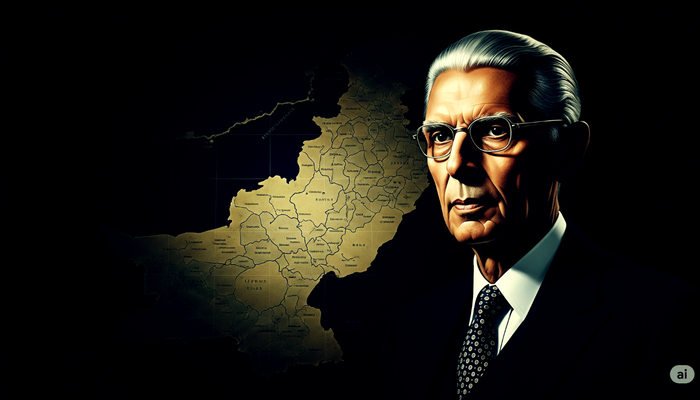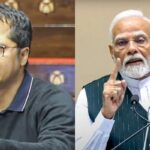When India was being partitioned in 1947, many seculars were afraid that the fate of how the two countries would turn out to be. Seculars back then had the misconception that their so-called secular and progressive ideas would be valued once they moved to Pakistan after partition.
But ever since the formation of Pakistan on August 14, 1947, no secular and progressive idea or individual has been able to survive in the country. The Hindus, who chose Pakistan over India, were brutally killed in front of their houses for being ‘Kafirs’. And, the handful of Muslims who supported progressive ideas were either forced to leave Pakistan or were left to die in isolation. After leaving the country, all these Momin Hazrats came back to India, and to date, their descendants are propagating their Islamic ideologies while singing the famous lines of Iqbal’s poem, which read as-
ऐ आबरुए गंगा – अब तक है याद हमको – उतरा तेरे किनारे – जब काफिला हमारा
Be it Pakistan’s first law minister or the writer of Pakistan’s first national anthem, here is an account of how these so-called progressive people got the taste of Islamic ideology. They faced public humiliation, were mob lynched, and had to flee from the so-called ‘good’ Pakistan to the so-called ‘bad’ India to save their lives.
The first name to appear in this series is that of economist Professor Nrij Narain. He was a supporter of Mohammad Ali Jinnah’s ‘Two-Nation Theory‘. Narain described Pakistan as a country with a better economic model and better prospects than India. However, his belief could not save his life. Narain was killed right in front of his house in Lahore by a bloodthirsty Islamic mob, who called him a ‘Kafir’on the day Pakistan was formed.
Brij Narain’s friend, Jogendra Nath Mandal, met a similar fate. Mandal, along with Jinnah, proposed a theory which said that since Muslims, along with Dalits, are a minority in India, they would, despite becoming a majority in Pakistan, protect the rights of Dalits. This is similar to the ‘Jai Bheem, Jai Meem’ narrative pushed by AIMIM leader Asaduddin Owaisi.
Jinnah appointed Jogendra Nath Mandal as the first Law Minister of Pakistan. But, after the death of Jinnah, Mandal’s tenure as the Minister of Law and Labour was cut short as he was forced to leave Pakistan and come back to India in 1950, after personally facing and witnessing discrimination against Dalits by the Muslim majority.
The progressive people at that time voiced their support for the creation of a country, which was being formed solely in the name of Islam. Poet Sahir Ludhianvi, music maestro Bade Ghulam Ali Khan and the outspoken author of Urdu literature Saadat Hasan Manto all initially chose to stay in Quaid-e-Azam’s Pakistan. But it did not take them long to realise their mistake. After living there for a while, they realised that they had chosen hell instead of heaven. Describing the situation in Pakistan, Bade Ghulam Ali Khan, who came back to India, remarked that only Muslims can live in that country.
Sahir Ludhianvi, who used to promote the Communist ideology through an Urdu magazine called ‘Savera’, feared that he would be arrested and eventually killed on the allegations of writing provocative and seditious articles against the Pakistani government. Gripped by the fear that he would be beheaded someday while walking down the streets of Pakistan, Ludhianvi hid himself under a Burqa and discreetly returned to India overnight. Ironically, after coming to India, Ludhianvi spent the rest of his life under the protection of a Hindu named Prakash Pandit.
Urdu author Saadat Hasan Manto, who left India for Pakistan, faced legal cases for his writings like ‘Thanda Gosht’. He faced persecution at the hands of an Islamic regime. He was pushed into destitution by the cutting of his income sources; as a result, he went into depression. The fire of Islamic ideology not only roasted his Thanda Gosht but also charred his desire to live. Within a few years of the formation of the ‘ideal’ country of Pakistan, he died of liver cirrhosis due to alcohol addiction.
Sajjad Zaheer, a founding member of the Communist Party of India, also chose Pakistan. He went to the Islamic country and formed the Communist Party of Pakistan. But he was arrested in the Rawalpindi Conspiracy case and was tortured in jail. After being released from jail in 1955, he came straight back to India.
There are dozens of such names, like Javed Akhtar’s father-in-law, Kaifi Azmi, and Qurratul Ain Hyder, who supported Pakistan at the time of partition. But when they moved to Pakistan, they were forced to flee from there. There were many such names in the Muslim League at the time of partition who gathered votes for the party, which was at the core of the formation of Pakistan. And yet, they stayed back in India after the formation of Pakistan to finish their half-achieved target of converting India into Dar-ul-Islam. These people became supporters of the Communist ideology and disguised their real intentions under the garb of ‘social work’.
Even today, there are people in India whose eyes eagerly keep searching for a messiah on the other side of the border. Some of these people are tormented by the worry of the future of their progeny, while others believe that India, under a Hindutva regime, has become the Pakistan or Taliban of Hindus.
Here is an appeal to the torchbearers of secularism in India, that they should read the history of the famous secular personalities who lived during the time of partition and keep their faces in their minds till the end of time to remember what happened to them in Pakistan.
They should remember that the idea of Pakistan is not a mere thought or imagination. It is a savage mob of religious fanatics gathered by misleading and deceiving people in the name of a heavenly book. Not to forget that whoever fell in love with the idea of this savage mob was eventually torn into pieces and fed upon by the same bloodthirsty mob.












